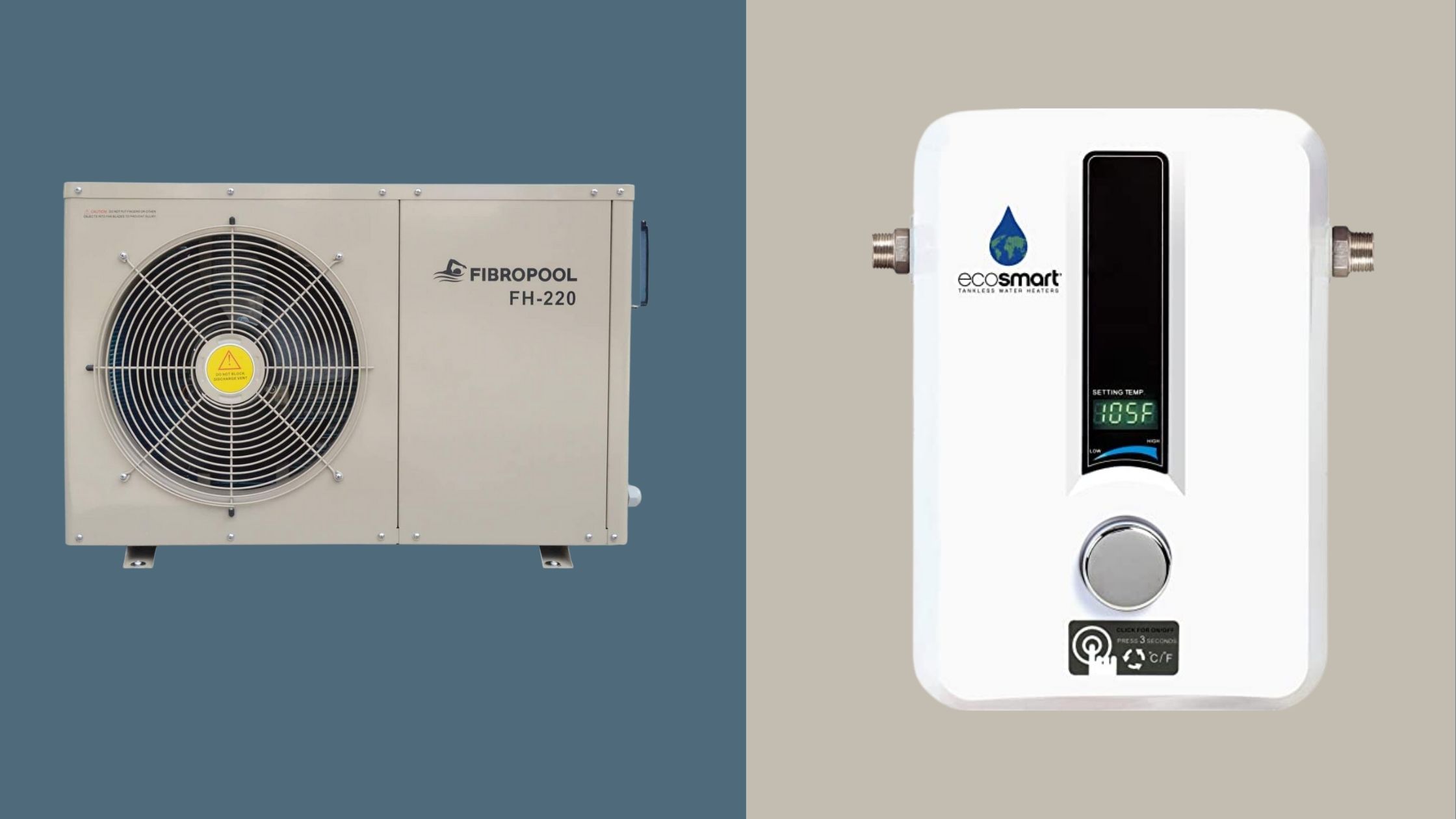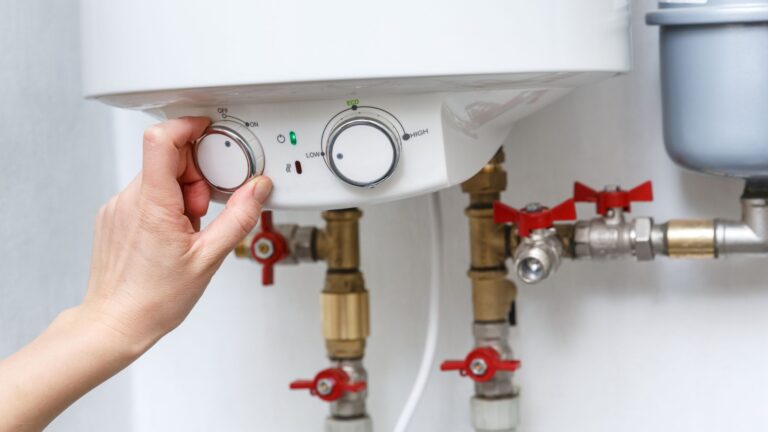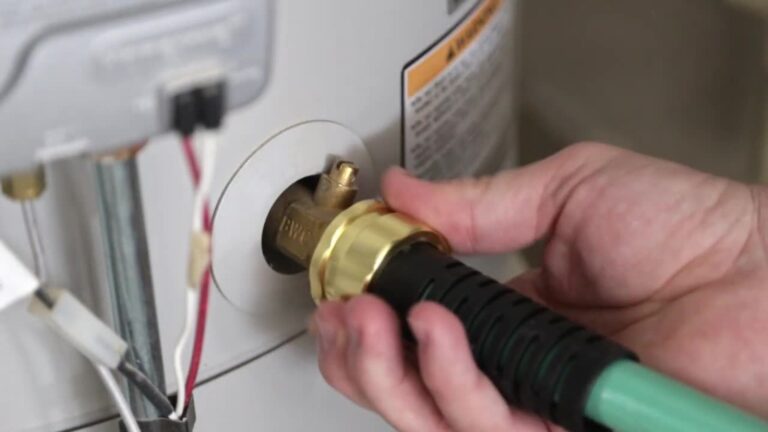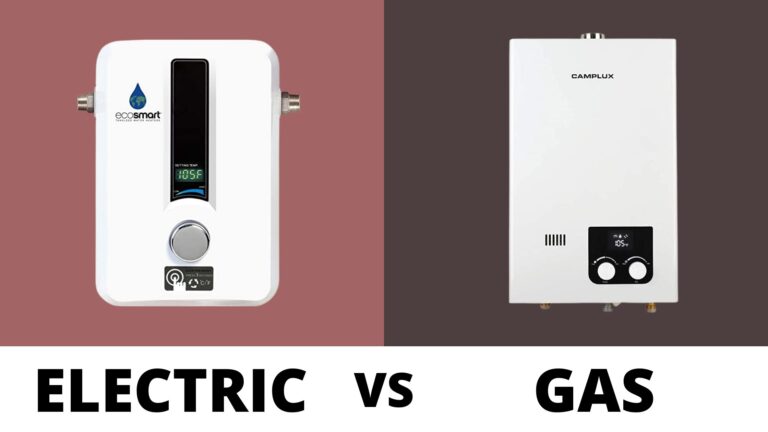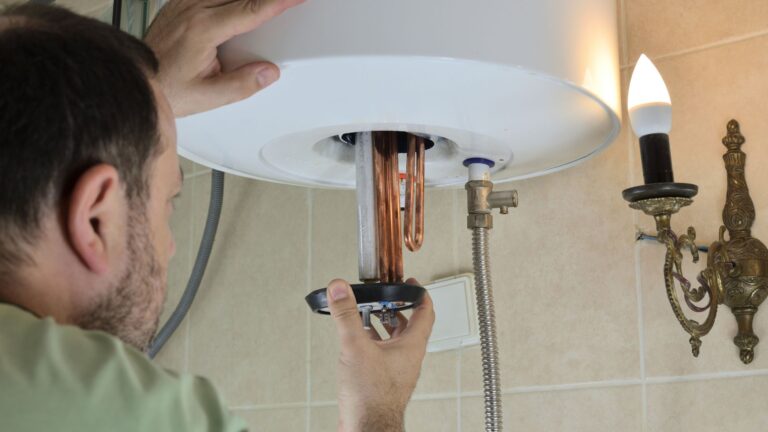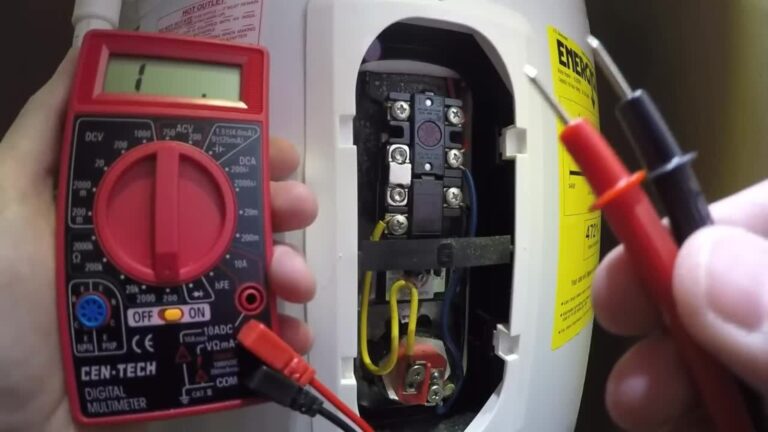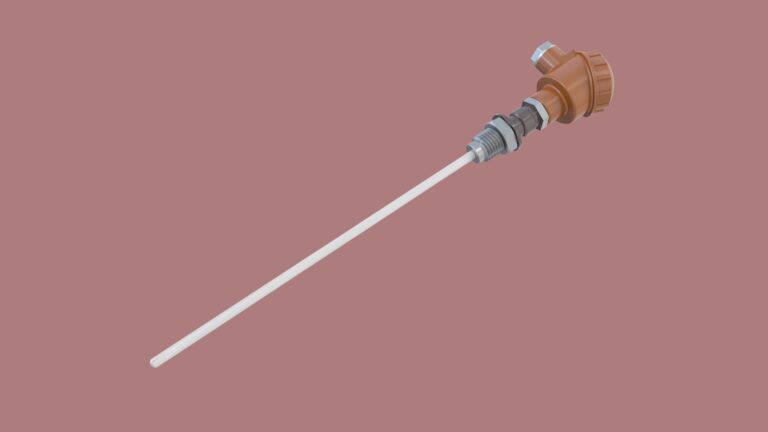Heat Pump Water Heater vs Tankless – The Differences You Must Know!
Homeowners need to deal with hundreds of difficulties from day to day. Choosing the right type of water heater is one of them. The problem is even bigger when you’re a novice homeowner and you’re not used to dealing with stuff like that.
On the other hand, both tankless and heat pump water heaters have taken much of the attention away from regular water heaters for decades.
So, it’s natural to get puzzles about heat pump water heater vs tankless.
Both types come with individual features and you need to choose one based on your requirements. Heat pump water heaters are more energy-efficient but you’ll need a lot of space to place them. On the contrary, tankless water heaters offer you an unlimited supply of hot water plus other advantages.
So, before you make the final decision, it’s best to know every necessary information about both heaters. Scroll down to know which heater is noisy, which one can give you instant hot water and other relevant information regarding the topic.
Heat Pump Water Heater vs Tankless- A Quick Comparison
In case you’re in a rush, this quick table will help you get the most important points of a heat pump aka hybrid water heater vs tankless one.
| Key Factors | Heat Pump Water Heater | Tankless Water Heater |
| Efficiency | Higher | Lower |
| Lifespan | Long | Long |
| Initial cost | Higher | High |
| Required space | More | Less |
| Instant supply of hot water | No | Yes |
| Noisy | More | Less |
Key Differences Between Heat Pump Water Heater and Tankless

This time, we’ll walk you through the detailed differences between the two types of the water heater.
Working Process
Heat pump water heaters do not generate heat directly. Instead, they move heat from one place to another by using electricity. On the other hand, tankless water heaters use natural gas or electricity to heat the water.
You can call a tankless water heater an ‘on-demand water heater’ as it doesn’t have a water-filled tank. But it generates heat and supplies hot water almost instantly.
A heat pump water heater grabs heat from the air of the tank first. Then, it uses a coil system and a pump to warm the water. After that, it supplies the hot water through the home appliances like showers and faucets.
As you can see, the working process of the two water heaters is not the same.
Performance
The next factor we consider while discussing the differences between the two water heaters is their performance. The water heater you choose should fulfil the demands of your household.
While it’s a tankless water heater, it heats the water on demand. For this, you may not get the hot water for multiple purposes at once. Obviously, it’s okay if you need to do two things at a time with hot water, but expecting to get the third supply at the same time would be an issue.
On the other hand, a heat pump water heater uses a tank filled with hot water.
So, you can use the water without any limitation. But there’s a catch- since the water is heated by the surrounding heat source, the water may not always get as hot as you need.
It happens when the environment has a lack of enough heat to pull through the system for heating the water.
Energy Efficiency
Since heat pump water heaters do not have to generate heat, they can save a lot of energy compared to tankless water heaters. Instead, they just draw the existing heat from the air surrounding them to heat the water.
Moreover, heat pump water heaters use electricity more efficiently compared to tankless water heaters. They do not require any electrical upgrades for installation.
But tankless water heaters need to handle the energy demands of hot water according to the user’s demand. For this, tankless heaters require electricity to upgrade as needed.
Thus, a hybrid water heater offers you a more efficient result than a tankless one.
Operating Costs
The operating costs of both of the water heaters depend on what type of fuel you use. When it’s only an electric service, the operating cost for a heat pump heater will be lower because it doesn’t generate heat itself.
A tankless water heater that uses electric service requires almost the same amount of cost as the heat pump water does. But if your tankless heater uses natural gas, it costs more.
Annually, a hybrid water heater costs an average of $190 per year. On the contrary, the amount for a gas-fueled tankless water heater is about $228 per year.
The cost will be higher according to the size of your household.
Installation Costs
The installation cost for both heat pump water heater and tankless water heater are almost the same. Still, a heat pump water heater will be a bit more expensive.
If we clarify the amount, you may need to spend around $1660 on a heat pump water heater and $1600 on a tankless water heater.
However, the installation costs may vary according to the available facilities. A heat pump water heater should be installed in an open area. This means you will need to run the electrical parts to a different part of your home.
Pros and Cons of A Heat Pump Water Heater

To get you the full view of each type of water heater, here we’ve compiled the pros and cons offered by a heat pump water heater.
Pros
- Energy Efficiency: We already mentioned that heat pump water heaters heat the water by using the ambient heat from the air surrounding rather than directly generating heat.
So, there’s no extreme usage of the energy to create heat continuously. Imagine, you live in a warmer climate and guess how huge an amount of energy the heater can reduce. Eventually, the money you spend on heating the water is also lesser in amount.
- Fast ROI: You can expect to get the ROI of hybrid water heaters within as short as 4 years of period.
- Rebates and Incentives: You can receive a specific amount of tax credit from the federal government for purchasing a heat pump.
Although it depends on your location and the unit you choose, the average amount is around $300. If you’re from a state like Maine, you will receive as high as a $750 instant rebate.
- Environmentally Friendly: People who are super conscious about their surroundings search for environmentally-friendly water heaters.
And, heat pump water heaters are just what they want because the carbon footprint of these heaters is 2-4x lower than a conventional tank. For this, heat pump water heaters are the favourite options for environmental groups such as RMI and NRDC.
Cons
- More Effective in Warmer Climates: The fact is, the efficiency of a heat pump water heater gets higher when the air is warmer. However, they are still efficient when the climate is cooler but you’ll get the best result in warmer climates.
- Background Noise: A soft humming sound may bother you while running a hybrid heat pump. For this, you can place it in a distant place to avoid the noise.
- Need More Space: If you need a space-saving option, a hybrid water heater won’t be the best pick. There’s a heat pump on top of a hybrid water heater which is taller than its electric countertops. Furthermore, the unit utilizes the ambient air around it, so you should place it in a 100 sq. ft of the open area surrounding the water heater.
- Higher Installation Cost: The installation cost of a hybrid water heater isn’t too high but still a bit higher than the tankless one. Also, the installation process is even more complex, meaning more of a plumber’s time.
Pros and Cons of A Tankless Water Heater

This section contains the benefits and drawbacks you can get from a tankless water heater.
Pros
- Unlimited Supply of Hot Water: Since there’s no storage of hot water, you don’t have to worry about the storage getting empty while you’re stuck taking a cold shower.
Tankless water heaters generate heat simultaneously and supply you with hot water on demand. However, the heaters only can heat a specific amount of water at a given time which can be an annoying limitation for someone.
- Need Less Space: Homes with a compact space take full advantage of a tankless water heater. You can easily mount the heater to your wall. Let’s clear the muddy water for you, an average tankless unit is rectangular, 10” in depth, 18” in width, and 27” in length.
- Great ROI: Both of the water heaters offer you a great return on investment. According to research, tankless water heaters can save 22% on electricity bills. Also, they offer longer warranties which means you need to spend less when your heater needs to be repaired.
- Long Lifespan: Heat pump water heaters also have a long lifespan. They can offer longevity of as long as 10-15 years but tankless water heaters offer more. They can last up to 20 years if you can maintain them properly.
Cons
- Higher Operating Costs: Since the water heater will continuously generate heat whenever you need hot water, it will cost a high amount to run a whole-home electric tankless water heater.
- Chances of Temperature Fluctuation: When you use multiple showers, clothing washer, dishwasher, or all of the appliances at the same time, there’s a chance of getting some inconsistency in temperature.
As there’s no tank, there’s no chance to pull hot water from anywhere else. For this, if you stretch the supply lines too thin, you may not get the water heated fast.
- No Chance of Getting Hot Water During a Power Outage: Whenever your home is out of power for a storm or any other unwanted situation, it affects the supply of hot water if you use a tankless water heater. Even if your tankless water heater is powered by gas, it counts on an electric control panel to operate the system.
Frequently Asked Questions
Is it worth buying a heat pump water heater?
Of course, the overall outcome from a heat pump water heater does worth every penny you spend on it. A heat pump water heater has lower operating costs, energy efficiency, environmentally friendly, and it offers so many advantages that overweight the drawbacks.
How long a heat pump water heater needs to heat up?
It depends on how much water your shower uses. If we say an average amount, usually a shower uses 16 gallons of hot water. In that case, the heat pump needs more or less 2 hours to reheat the water.
Is a tankless water heater good in cold climates?
Yes. A tankless water heater works great in both cold and warm climates. But you must make sure that the unit has been sized accurately for meeting the required hot water.
Can I run out of hot water with a tankless water heater?
You own a tankless water heater means you won’t run out of hot water. But when you use multiple water sources at the same time, you won’t get the desired result as there’s a chance of facing inconsistent water temperature.
Conclusion
And, that’s what we got to say about heat pump water heater vs tankless ones. We hope that you’ve had a clear idea about the topic and meanwhile you could choose the one type of water heater according to your need.
However, no matter which type you go for, make sure you use, clean and maintain the heater to have a long journey with the machine. Good luck!

